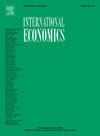货币传导机制中的非线性和国家依赖性:来自商品依赖型经济的证据
引用次数: 0
摘要
本文运用地方预测方法,研究了商品依赖型发展中经济体蒙古货币政策传导机制的非线性和国家依赖性。我们的实证分析产生了几个新的发现。首先,传导滞后因经济状况而异,在经济衰退期比经济扩张期更长。其次,在经济衰退、货币宽松和高通胀时期,货币政策刺激GDP的有效性会得到增强,而在经济扩张时期,货币政策控制通胀的能力会降低。在经济衰退和货币紧缩并存的时期,货币政策对银行利率的传导作用更为明显。第三,扩张性货币政策冲击的影响更强,导致实际有效汇率贬值和银行利率大幅下降。这些发现在各种模型规格中都是稳健的,突出了在评估货币政策有效性时考虑经济状况的重要性。本文章由计算机程序翻译,如有差异,请以英文原文为准。
Nonlinearities and state-dependence in the monetary transmission mechanism: Evidence from a commodity-dependent economy
This paper examines the nonlinearity and state-dependence of the monetary policy transmission mechanism in Mongolia—a commodity-dependent developing economy—using local projection methods. Our empirical analysis yields several novel findings. First, transmission lags vary with economic conditions, being longer during recessions compared to expansions. Second, the effectiveness of monetary policy in stimulating GDP is enhanced during recessions, periods of monetary loosening, and high inflation regimes, whereas its capacity to control inflation is reduced during expansions. Monetary policy pass-through to bank interest rates is more pronounced in periods combining recession and monetary tightening. Third, expansionary monetary policy shocks have stronger effects, leading to a depreciation of the real effective exchange rate and sharp declines in bank interest rates. These findings are robust across various model specifications, highlighting the importance of accounting for economic states when assessing the effectiveness of monetary policy.
求助全文
通过发布文献求助,成功后即可免费获取论文全文。
去求助
来源期刊

International Economics
Economics, Econometrics and Finance-Economics, Econometrics and Finance (all)
CiteScore
6.30
自引率
0.00%
发文量
74
审稿时长
71 days
 求助内容:
求助内容: 应助结果提醒方式:
应助结果提醒方式:


